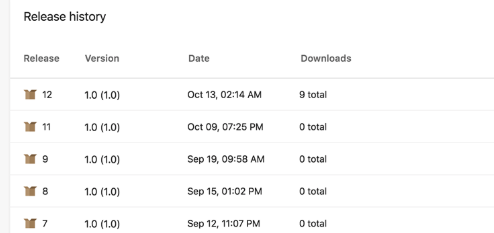I am using Azure DevOps and AppCenter(Distribution) for implementing my CICD. Based on the steps mentioned below I have implemented the both CI & CD tasks.
Thant means,
I will create the build using Azure Devops (VSTS) & Push that in to App Centre.
Here my doubt is,
How I can increment my Build and Version numbers while distributing these builds?

